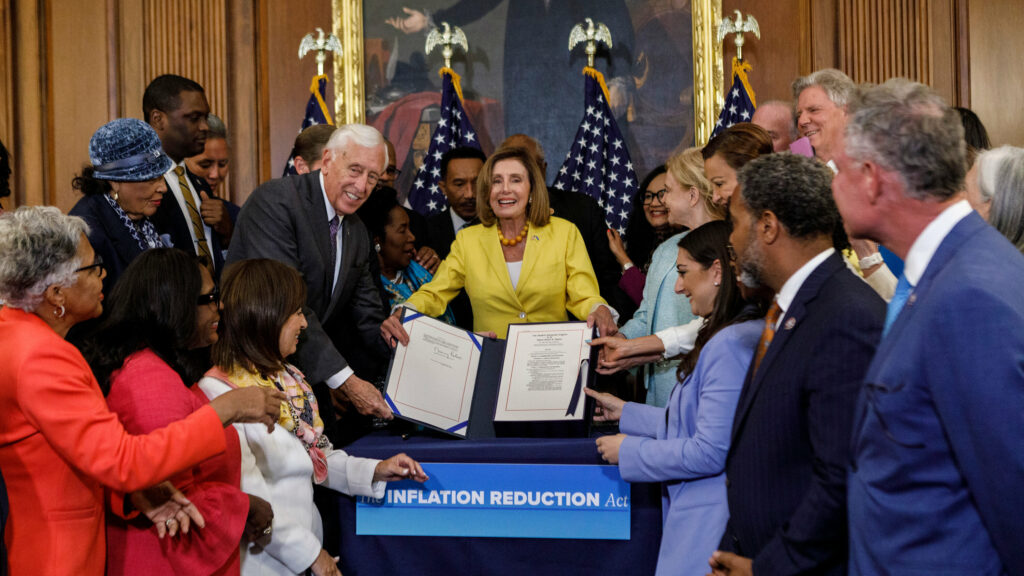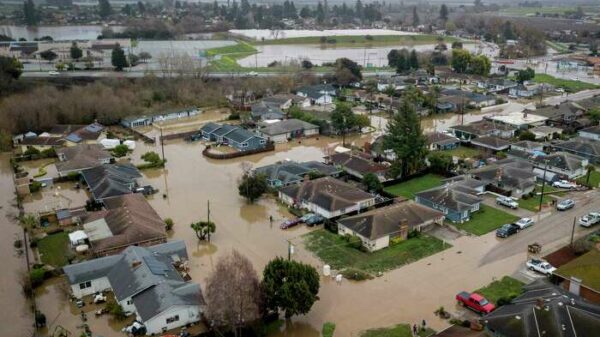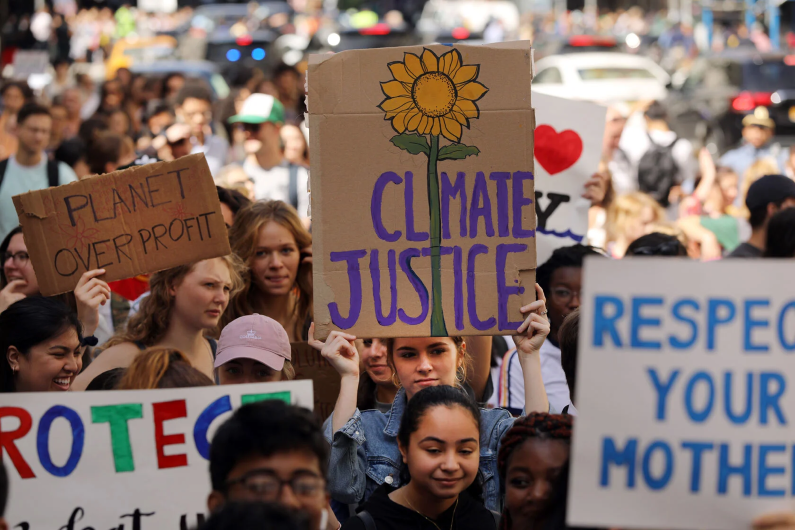
The state’s poorest counties have dozens of large-scale solar and battery storage plants leading to the formulation of the Inflation Reduction Act. (Photo: The New York Times)
There are 60,000 electric vehicle (EV) chargers on New York’s highways. The state’s poorest counties have dozens of large-scale solar and battery storage plants leading to the formulation of the Inflation Reduction Act. The largest planned offshore wind project deployment in the United States. Thousands of new well-paying green-energy jobs, with skill-training programs to ensure availability.
New York’s already robust clean energy economy has soared in recent months, particularly in renewable energy and electrification of the transportation sector. That investment is set to accelerate even further as the federal Inflation Reduction Act (IRA) takes effect, advancing economic development and industrial strategy on both the national and local levels.
READ ALSO: The Inflation Reduction Act Pros and Cons: Will it Tackle Inflation or Create More Problems?
Miller/Howard Investments has been incorporating environmental, social, and governance (ESG) research into our investment portfolios since the early 1990s. For decades, as global temperatures rose and extreme weather events worsened, we — along with many other businesses and investors — have advocated for strong federal action to accelerate the transition to a clean energy economy, both to limit the business risks of the climate crisis and to capitalize on the enormous economic opportunities that come with combating it.
The legislation, which includes significant and long-term financial incentives for businesses and consumers, as well as unprecedented investment in key environmental justice initiatives for rural and disadvantaged communities, is expected to achieve a 40% reduction in U.S. climate pollution by 2030 — enough to keep us on track to meet our national goals to avoid the worst effects of this crisis.
The Inflation Reduction Act will direct billions of dollars in new investments into developing advanced manufacturing capabilities, building domestic supply chains, and guiding infrastructure build-outs that promise to uplift every corner of the state, in tandem with New York’s ambitious 2019 climate law, as well as the federal CHIPS and Science Act that passed last summer and the bipartisan Infrastructure Investment and Jobs Act approved by Congress in 2021.
READ ALSO: The Importance Of Biden’s Inflation Reduction Act

















